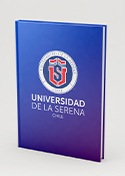Browsing by Author "Barbuy, B."
CAPOS: the bulge Cluster APOgee Survey IV elemental abundances of the bulge globular cluster NGC 6558
(MONTHLY NOTICES OF THE ROYAL ASTRONOMICAL SOCIETY, 2023-10-20) González-Díaz, D.; Fernández-Trincado, J. G.; Villanova, S.; Geisler, D.; Barbuy, B.; Minniti, D.; Beers, T. C.; Bidin, C. M.; Mauro, F.; Muñoz, C.; Tang, B. T.; Soto, M.; Monachesi, A.; Lane, R. R.; Frelijj, H.
This study presents the results concerning six red giant stars members of the globular cluster NGC 6558. Our analysis utilized high-resolution near-infrared spectra obtained through the CAPOS initiative (the APOgee Surv e y of Clusters in the Galactic Bulge), which focuses on surv e ying clusters within the Galactic Bulge, as a component of the Apache Point Observatory Galactic Evolution Experiment II surv e y (APOGEE-2). We employ the Brussels Automatic Code for Characterizing High accUracy Spectra ( BACCHUS ) code to provide line-by-line elemental-abundances for Fe-peak (Fe, Ni), alpha-(O, Mg, Si, Ca, Ti), light-(C, N), odd-Z (Al), and the s-process element (Ce) for the four stars with high-signal-to-noise ratios. This is the first reliable measure of the CNO abundances for NGC 6558. Our analysis yields a mean metallicity for NGC 6558 of ([Fe/H]) = -1.15 +/- 0.08, with no evidence for a metallicity spread. We find a Solar Ni abundance, ([Ni/Fe]) similar to + 0.01, and a moderate enhancement of alpha-elements, ranging between + 0.16 and < + 0.42, and a slight enhancement of the s-process element ([Ce/Fe]) similar to + 0.19. We also found low levels of ([Al/Fe]) similar to + 0.09, but with a strong enrichment of nitrogen, [N/Fe] > + 0.99, along with a low level of carbon, [C/Fe] < -0.12. This behaviour of Nitrogen-Carbon is a typical chemical signature for the presence of multiple stellar populations in virtually all GCs; this is the first time that it is reported in NGC 6558. We also observed a remarkable consistency in the behaviour of all the chemical species compared to the other CAPOS bulge GCs of the same metallicity.
